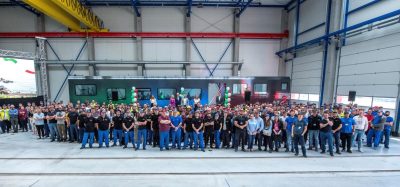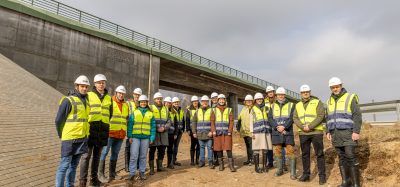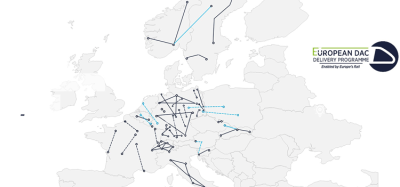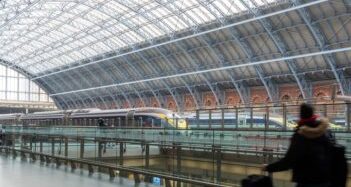South Western Railway commit to reach net zero by 2040
Posted: 29 September 2022 | Elliot Robinson (Editorial Assistant - Global Railway Review) | No comments yet
South Western Railway have announced a landmark commitment to reach net zero carbon emissions by 2040 at the latest.
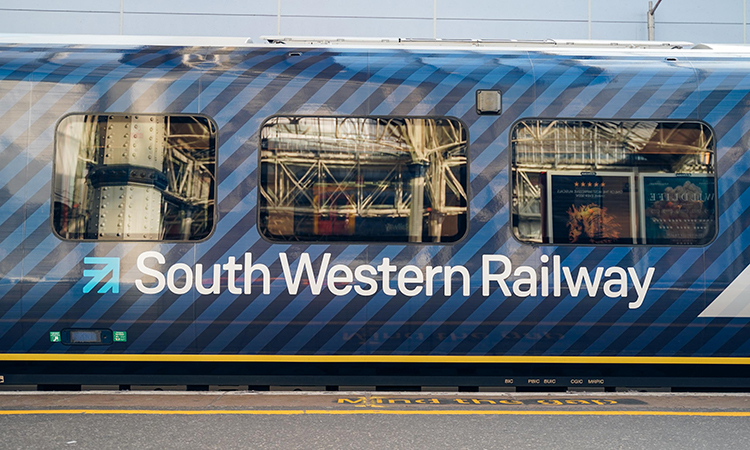

Credit: SWR
South Western Railway (SWR) has announced a landmark commitment and roadmap to deliver net zero carbon emissions by 2040 at the latest, 10 years ahead of the UK’s overall legal deadline to be net zero by 2050.
The Department for Transport (DfT) has backed SWR, in collaboration with Network Rail and other key stakeholders, to deliver the UK rail industry’s first robust, transparent, and cost-effective roadmap to net zero. This can lead the way for the decarbonisation of the whole UK rail network, soon to be overseen by the new Great British Railways (GBR), building a modern, innovative, and sustainable railway fit for the future that can attract customers back after the pandemic.
SWR plans to cut its carbon footprint with challenging, science-based targets, in line with the Paris Agreement to limit global warming to 1.5°C. This follows commitments made by FirstGroup in 2021, the first UK public transport company to commit to net zero targets.
These challenging targets have been independently assessed and will be audited by climate experts at the Science Based Targets initiative (SBTi), an internationally recognised authority which helps companies to set emission reduction targets in line with latest climate science. The bespoke roadmap to net zero has been designed according to the latest analysis of SWR’s climate impact: over half (52 per cent) of emissions are from supply chains, 45 per cent from running train services, and three per cent from buildings such as depots and stations.
SWR’s route to net zero will be underpinned by five key principles:
- Scientifically grounded: Emission reduction targets have been calculated in accordance with globally accepted scientific standards
- Value for money: A rigorous cost-benefit analysis will be central to the decision-making process when selecting interventions
- Targeting ‘quick wins’ first: Swift and decisive action will be taken to decarbonise where there is the most control and influence
- Remaining dynamic: The roadmap remains flexible and ready to respond to changes in the wider industry and economy
- Collaboration: Working closely with the supply chain and key stakeholders in the industry, including Network Rail and the DfT.
Related news you will enjoy:
South Western Railway upgrades wayfinding signage at three flagship stations
SWR will make use of innovative approaches and technologies, in tandem with the decarbonisation of the electricity grid, to deliver the roadmap. This includes retrofitting buildings, installing more LEDs, expanding the use of electric vehicles, reducing the use of gas, and switching from diesel to more sustainable fuel sources.
SWR also recognises that it has a part to play in enabling others to reduce their carbon footprint too. SWR will continue to encourage sustainable transport modes to and from its stations, through initiatives including the delivery of further cycle storage and electric vehicle charging points. Progress will be carefully monitored with tools such as the Rail Safety and Standards Board carbon calculator used to measure SWR’s embodied carbon footprint, while suppliers will be requested to provide Environmental Product Declarations or other carbon data.
“Tackling climate change is one of the greatest challenges facing the railway, and indeed the whole country,” Amy Dickinson, Head of Sustainability at SWR, said. “Taking the train is already one of the most sustainable ways to travel, and we are proud of the progress we have made so far, but we know that more needs to be done. We are leading the way as the first train operating company to publish a robust, transparent, and cost-effective roadmap to net zero by 2040, ten years ahead of the UK’s overall 2050 legal deadline. We want to work holistically on sustainable transport links to and from our stations, trialling new technology, and utilising opportunities to create hundreds of green jobs across our network, ensuring our customers can travel in an increasingly green and sustainable way.”
“Southern Western Railway’s commitment to deliver net zero carbon emissions by 2040, is a bold and ambitious target which will make our railways even greener,” Kevin Foster MP, DfT Rail Minister, said. “Through our Transport Decarbonisation Plan, and commitments like SWR’s, our railway is leading the way in creating cleaner, more environmentally friendly ways to travel.”
“It is really encouraging to see the leadership and action being committed to by South Western Railway in their ambitious decarbonisation roadmap,” George Davies, Sustainable Development Director for RSSB, said. “It will contribute to best practice for the rest of the industry to learn from and apply elsewhere. We are currently finalising the Sustainable Rail Strategy, which will provide consensus on action areas and targets needed to achieve a net zero railway by 2050, eliminating emissions from both trains and fixed infrastructure.”
SWR’s commitment to reach net zero carbon emissions by 2040 is dependent on a range of external factors including but not limited to: Government funding; policy commitments to decarbonise the National Grid and electrify the rail network; investment and innovation in rolling stock technology; and action from the wider value chain.
Delivering this long-term vision for a cleaner, greener railway will take many years and require a concerted, consistent, and collaborative effort from operators, infrastructure managers and, crucially, the supply chain, all enabled by Government and Great British Railways. SWR will take a leading role across industry to make the changes that are required to reach the achievable goal of net zero by 2040.
Related topics
High-Speed Rail, Regulation & Legislation, Sustainability/Decarbonisation
Related organisations
Department for Transport (DfT), Great British Railways (GBR), Network Rail, Rail Safety and Standards Board (RSSB), South Western Railway (SWR)




